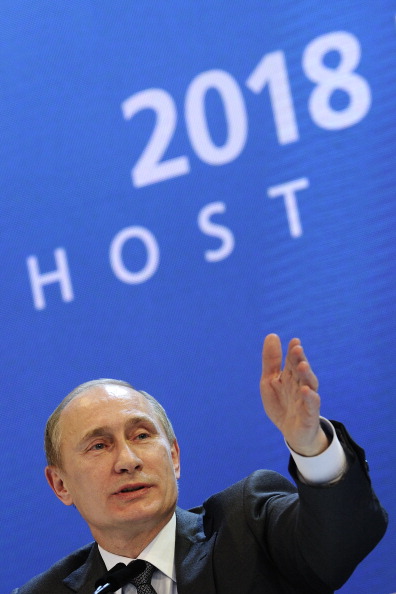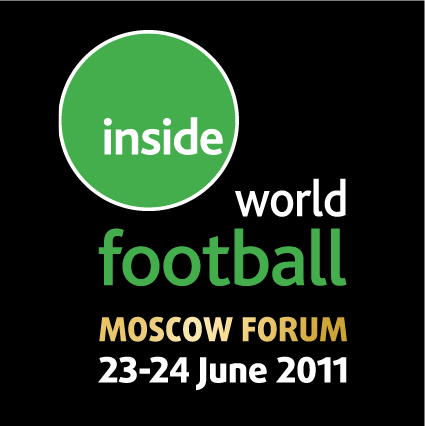By David Gold
 June 5 – Hazem Galal (pictured), a partner at PwC Brazil and a speaker at the Inside World Football Moscow Forum, has told insideworldfootball that Russia can learn from Brazil’s 2014 World Cup preparations, and in particular that it needs to get the balance between public and private investment right by providing the appropriate incentives and regulatory frameworks.
June 5 – Hazem Galal (pictured), a partner at PwC Brazil and a speaker at the Inside World Football Moscow Forum, has told insideworldfootball that Russia can learn from Brazil’s 2014 World Cup preparations, and in particular that it needs to get the balance between public and private investment right by providing the appropriate incentives and regulatory frameworks.
Like Brazil, Russia had seven years to prepare for the World Cup after winning the right to host the tournament at the end of 2010.
The size of the two countries and their status as two of the world’s fastest growing economies, as well as the fact that both are hosting Olympic and Paralympics Games – the 2014 Sochi Winter Olympics and 2016 Rio Summer Olympics – as well as the World Cup, mean they have much in common.
“There is a lot of similarity, given the continental dimensions and the need to build some language capabilities for people who neither speak Portuguese nor Russian,” Galal told insideworldfootball.
“Brazil lost almost a year of preparations through very slow initiation and implementation of infrastructure projects during the elections year and now it has to take some emergency measures to recover the lost time.
“The lesson for Russia is to make sure that whatever government action is needed, it happens according to a well structure time line and implementation plan which starts sooner, rather than later.
“The other key thing is to leverage the private sector involvement so that you are not dependent on government taking on the risk, that is the largest lesson learned [from Brazil].
“Beyond that, Russia really needs to think about legacy.
“They are going to be building large stadiums and you don’t want these to be under utilised post event.
“The main trick is that you need to balance time, quality and cost, so when you press on one of these dimensions you need to make up on one of the others.”
Unlike Brazil, Russia has a railway network that can be enhanced to cover the areas that the World Cup will take place, something Galal pointed out would give them an advantage in preparations for 2018, as well as highlighting some of the positive developments Brazil had made as a result of preparations for 2014 and 2016.
“Rio de Janeiro has made a substantial improvement to the security of the city,” he said.
“Areas controlled by drug traffickers have been reclaimed by police, particularly close to the Maracana.
“There have also been social benefits which came with the creation of new job opportunities to construct the infrastructure required and due to the growth of the tourism sector and other related areas. Major urban regeneration and urban mobility projects in Rio de Janeiro are under way.”
Though Brazil has had some issues constructing venues for the 2014 World Cup, with the Maracana requiring a new roof and work on the Itaquera Stadium in Sao Paulo only just beginning, Galal points out that stadia account for just a small part of the preparation required for a global tournament.
“Stadiums are just 5 pre cent of the total expenditure, they are the easy part.
“But FIFA work on the stadia and work their way outwards with diminishing interest!
“For the cities it is the other way around, and it creates an interesting tension between FIFA and the local Organising Committee.”
Beyond the impact on football in the country, the economic benefits to Russia of hosting the World Cup will be significant, and in many cases, host cities or countries of major sporting events enjoy a growth in global commerce of up to 30 per cent.

Such a boost would be timely; in 2007 Russian Prime Minister Vladimir Putin (pictured) pointed out that the country required investment of close to $1 trillion over the subsequent 10 years.
The World Cup is certain to speed up Russia’s progress in its infrastructural development, with up to 13 stadiums mainly outside Moscow being built for Russia 2018, as well as a host of other projects, including a high speed rail network.
Galal warns though that whilst providing an excellent opportunity to boost the country’s development, India’s hosting of last year’s Commonwealth Games showed the pitfalls that come with holding major sports events.
A bridge collapsed near India’s main stadium in Delhi a fortnight before the Games began, whilst some teams criticised their athletes’ accommodation.
“If you look at the BRICS (Brazil, Russia, India and China) all of them have or will have had major sporting events,” said Galal.
“India though, was an example of where a sporting event had a negative effect.
“It’s a great opportunity to enhance your brand and address some of your infrastructure and shortcomings, but the eyes of the world are on you.
“Proper planning and preparation are essential for a country to benefit from its time in the spotlight.”
Hazem Galal is the Leader of PwC´s Global Cities and Local Government Network and is also a member of PwC’s Global Leadership team for the Public Sector.
He is one of a number of high profile speakers who will be speaking at the Inside World Football Moscow Forum, which takes place on June 23-24.
For more details on the Inside World Football Moscow Forum, please click here.
Contact the writer of this story at zib.l1736211965labto1736211965ofdlr1736211965owedi1736211965sni@d1736211965log.d1736211965ivad1736211965
Related stories
May 2011: Coward confirmed as latest speaker at Inside World Football Moscow Forum
May 2011: Russian Premier League Executive Director confirmed as speaker for Inside World Football Moscow Forum
May 2011: Sorokin confirmed as speaker for Inside World Football Moscow Forum
March 2011: Announcing the Inside World Football Moscow Forum

